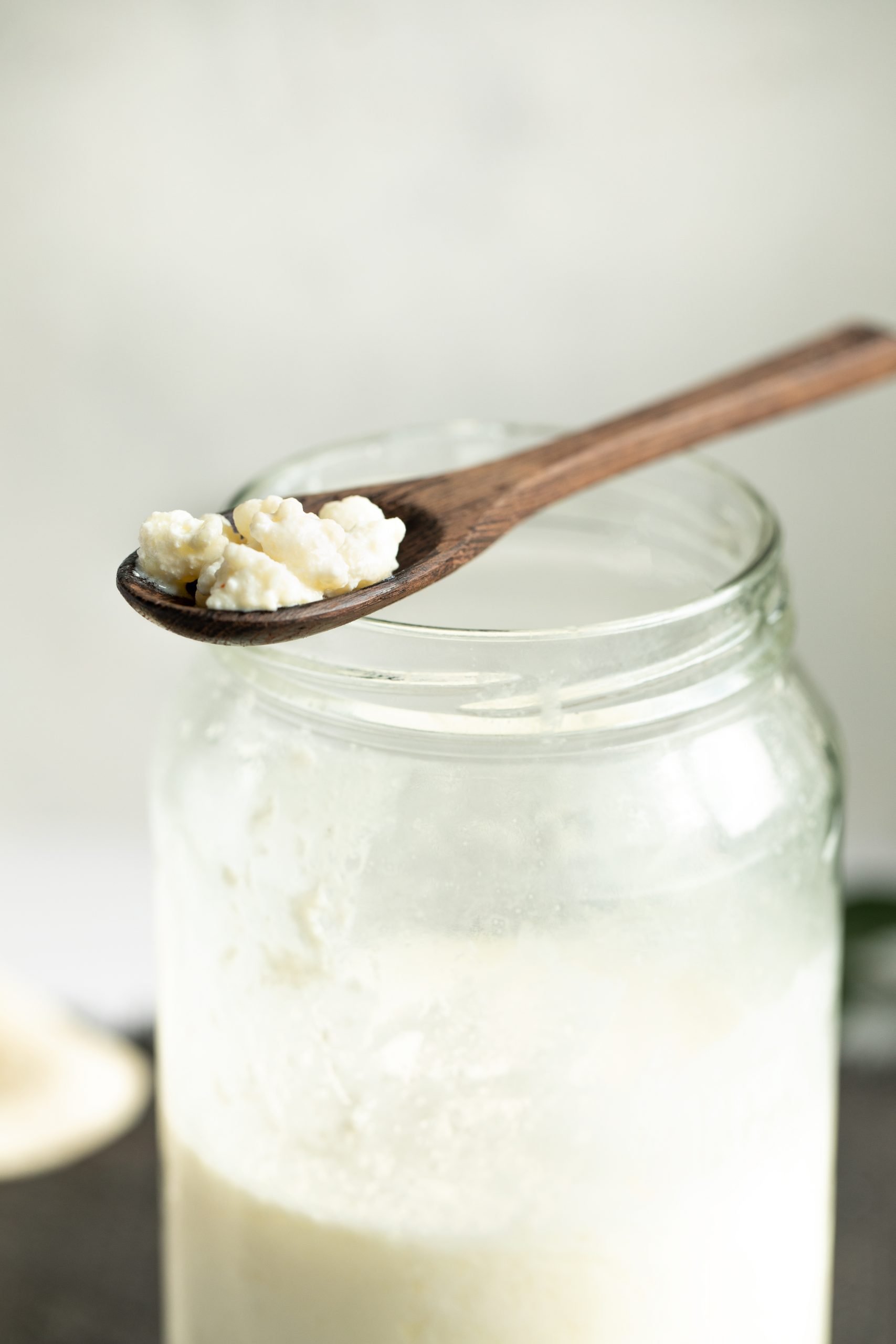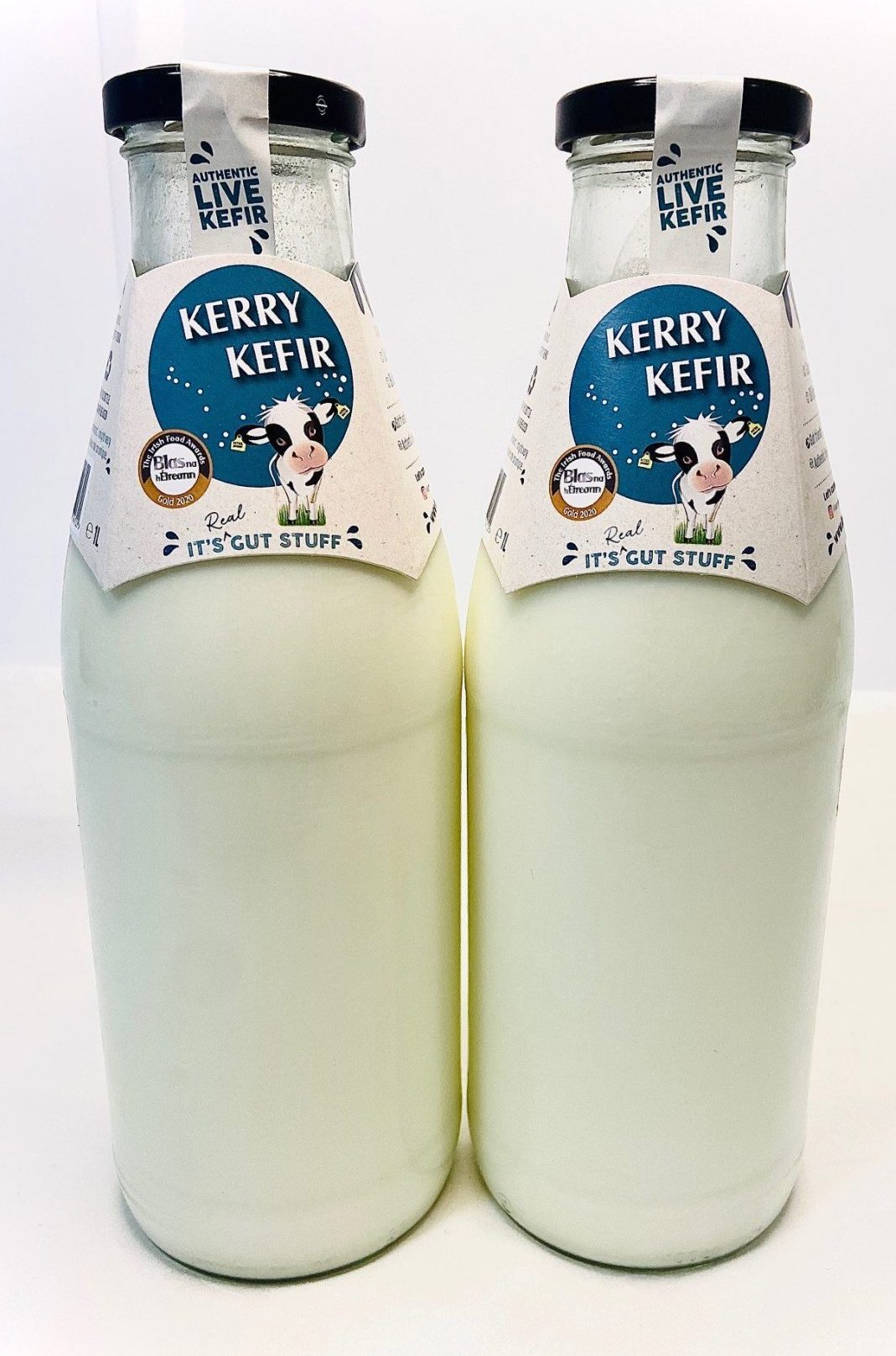Kefir is a fermented dairy drink that has been consumed for centuries for its potential health benefits. Kefir can be made with kefir grains or kefir powder.
Kefir Grains
These are living symbiotic cultures of bacteria and yeasts that ferment milk. They need regular feeding and care to remain active. Kefir grains can be used indefinitely for making kefir, contributing to a more complex flavour and potentially higher nutritional value. Additionally, they contain unique bacteria strains like Lactobacillus kefiranofaciens and Lactobacillus kefiri, exclusive to kefir grains.
Kefir Powder:
This is a dried form of bacteria, some of which are found in kefir grains, but not all. While it’s a common misconception, not all kefir powder originates directly from dried kefir grains. Some, especially those used in commercial manufacturing, are derived from lab-grown, extracted bacteria, which are freeze-dried and processed into powder for mass production. However, some products claim to use powder made from dehydrated kefir grains. This powder contains “deactivated” bacteria which become reactivated upon introduction to heated milk. However, it typically lacks the yeast strains found in kefir grains and offers less variety in bacterial cultures.

Here is a comparison of kefir grains and kefir powder:
| Characteristic | Kefir Grains | Kefir Powder |
|---|---|---|
| Type | Living Organisms | Dried Bacterial Cultures |
| Fermentation Time | Longer | Shorter |
| Flavor Complexity | More Complex | Milder, Yogurt-like |
| Nutritional Profile | Diverse Bacterial and Yeast Cultures | Primarily Bacterial Cultures |
| Cost | Higher Initially, Reusable | Lower, Single Use |
Which is better for making kefir?
There are pros and cons to using both kefir grains and kefir powder.
Kefir grains have a number of advantages. They produce a more complex and flavourful kefir, and they have a diverse microbial content. Kefir grains are also reusable, which can be environmentally friendly in the long run. However, kefir grains require more care and attention than kefir powder. They need to be fed regularly, and they need to be kept in a cool, dark place.
Kefir powder is more convenient than kefir grains. It is easier to store and use, and it does not require any special care. Kefir powder is also less expensive than kefir grains. However, kefir powder might not offer the same complexity in taste or diversity in cultures (especially lacking in yeast cultures).
Which one should you choose?
If you are looking for the best possible kefir, then kefir made using kefir grains is the way to go. Kefir grains produce a more complex and flavourful kefir with a more diverse microbial content. However, kefir made from kefir grains can be more expensive.
Check out our latest blog posts
What is the Gut Microbiome?
The gut microbiome is a complex and dynamic ecosystem of...
Traditional Kefir vs. Supermarket Alternatives. Which one is better for you?
With a growing number of fermented milks on the market, it can be...
The Truth About Kefir: Probiotics and Health Claims
Explore the truth about kefir’s benefits and the myths around probiotics. Learn what sets Kerry Kefir apart in our latest post.

